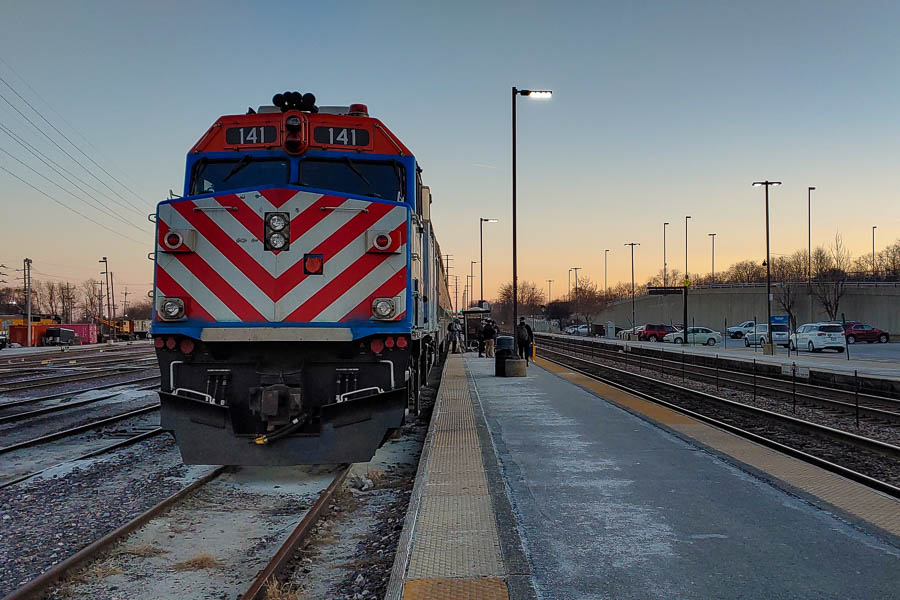Welcome to stops #19 and #20 on the Brews and Choos project.
Brewery: Nightshade & Dark's Pandemonium Brewing Co, 216 W Clayton St., Waukegan
Distillery: Oppidan Spirits, 220 W Clayton St., Waukegan
Train line: Metra Union Pacific North, Waukegan.
Time from Chicago (Ogilvie): 75 minutes, zone H
Distance from station: 800 m
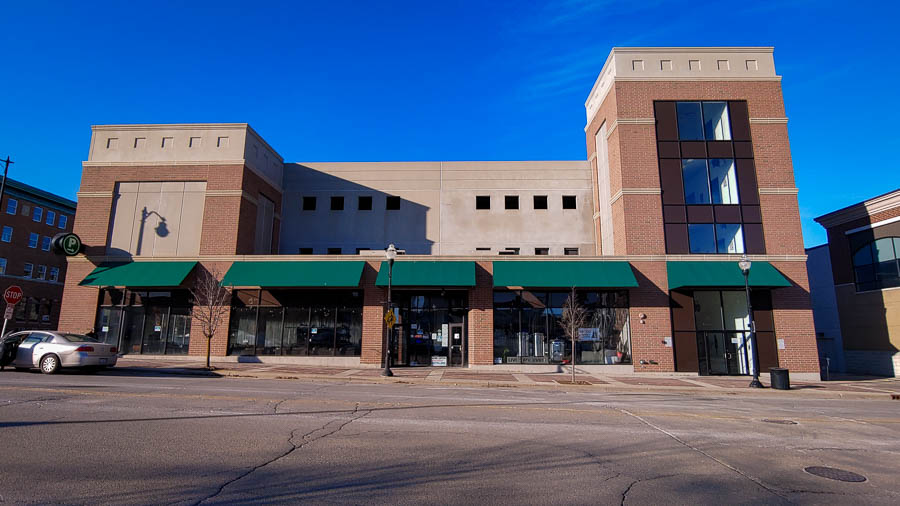
Nightshade & Dark's and Oppidan occupy the same space in central Waukegan in an arrangement that benefits anyone looking for good spirits and good beer.
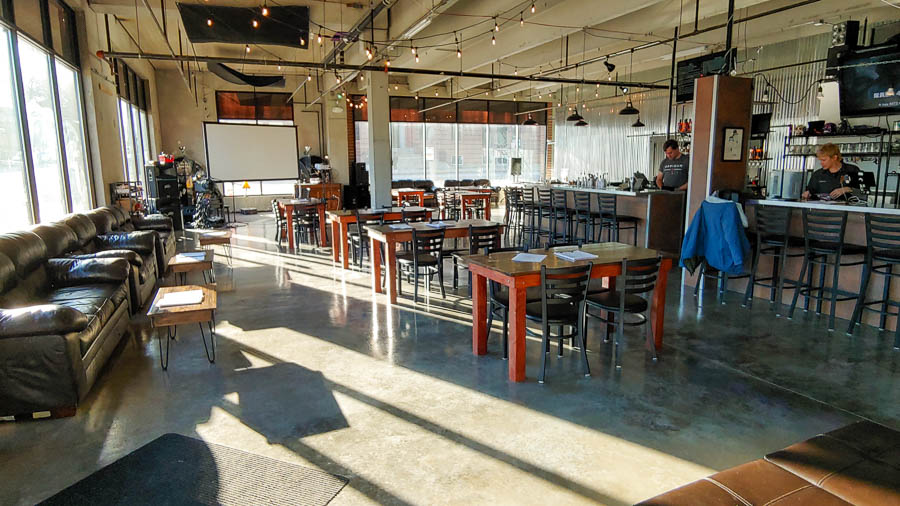
When I went all the way up there late in the afternoon on Leap Day, I arrived just as they opened: 4pm. That gave me a good bit of time to get to know both of them.
Oppidan started distilling in 2013, but didn't open the tasting room until shortly after Nighshade & Dark did on September 13th last year. They've already gotten good notices in the press, so I expected visiting wouldn't disappoint. It didn't.
I first got a flight of half-ounce pours from the distillery:
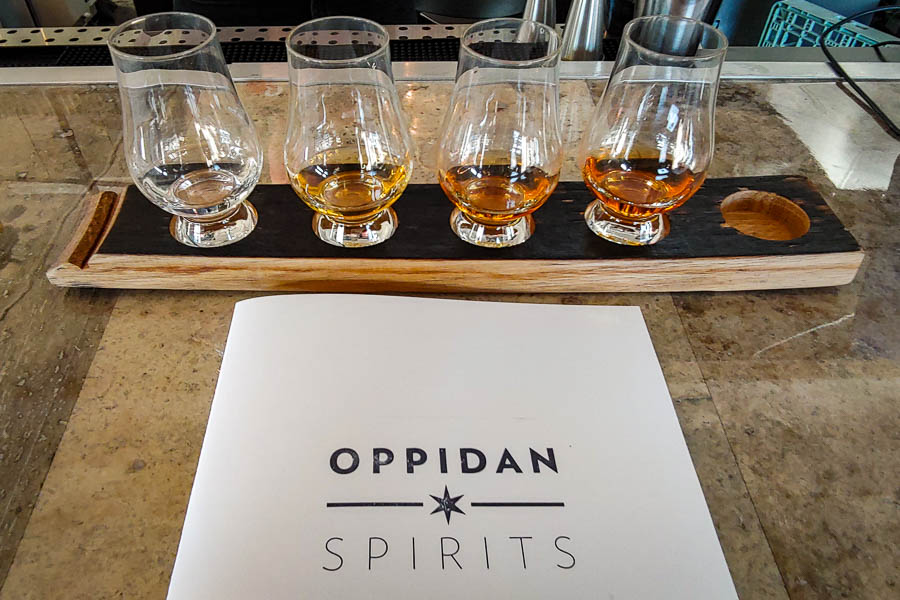
From left to right, the American Botanical Gin (86°), with a grapefruit note on the nose and cardamom, ginger, and elderflower on the back end; the Barrel Reserve Old Tom Gin (90°), a ginger-juniper delight with a hint of maple from cold-smoked barrels; the Four-Grain Bourbon (100°), with vanilla and malty-sweet notes that you wouldn't expect from such a hot spirit; and the bottled-in-bond rye (103°), aged 4 years and 5 months with a hot-pepper finish that the distiller admitted means he should have left it at cask strength instead of taking it down to 103.
Sliding over a few feet I sampled a few of Nightshade's brews, poured by Mrs. Nightshade herself:
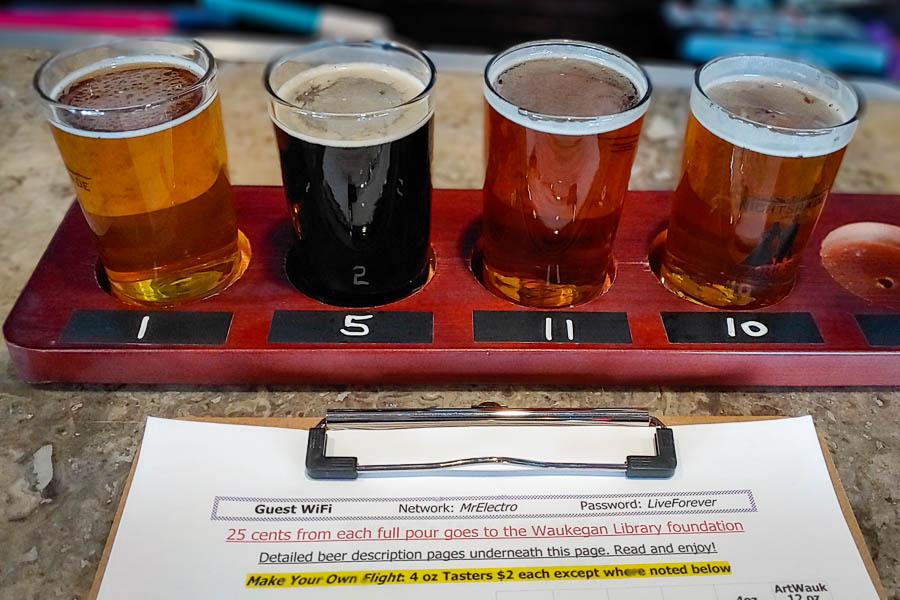
Many of their beers follow a Ray Bradbury naming scheme. But they named the two I started with, the Besley's Waukegan ESB (4.7%, malty, really great, close to a proper English bitter) and the Besley's Waukegan Porter (7%, dark, complex, chocolate and caramel notes), after Waukegan's first brewery, which existed from the 19th century through Prohibition.
I also had their Veldt Steam Ale (5.3%, malty, tasty, not too hoppy), which reminded me of my training beer, Anchor Steam Beer, and the Mr. Pale dry-hopped IPA (7%, mosaic hops, really great flavor).
The owners brew only 30 gallons of beer at a time, meaning almost all of the beer they serve is less than 11 days old. Often they only make one batch, and they don't distribute, so you'll have to go there to try them.
I will be back. I understand the place really looks cool at night. And hey, they're right off my train line.
Beer garden? Planning to open rooftop this summer
Dogs OK? No
Televisions? None
Serves food? Taco stand on premises, BYO otherwise
Would hang out with a book? Yes
Would hang out with friends? Yes
Would go back? Yes
